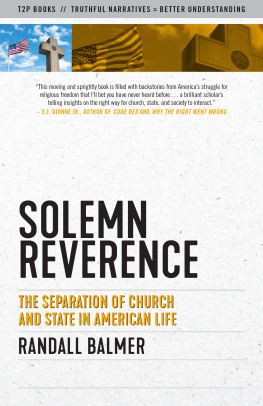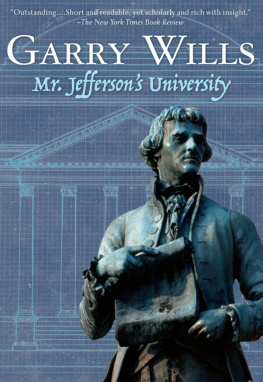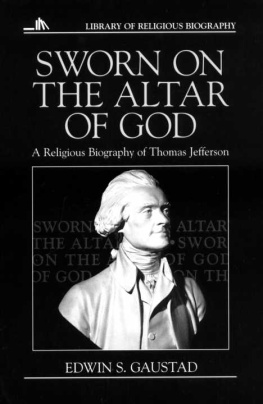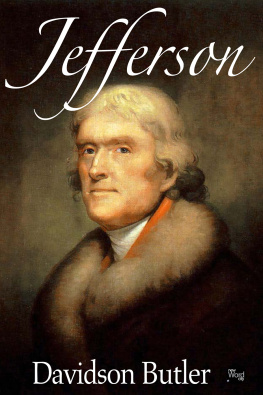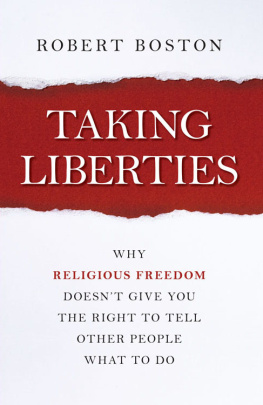Thomas E. Buckley - Establishing Religious Freedom: Jeffersons Statute in Virginia
Here you can read online Thomas E. Buckley - Establishing Religious Freedom: Jeffersons Statute in Virginia full text of the book (entire story) in english for free. Download pdf and epub, get meaning, cover and reviews about this ebook. year: 2014, publisher: University of Virginia Press, genre: Politics. Description of the work, (preface) as well as reviews are available. Best literature library LitArk.com created for fans of good reading and offers a wide selection of genres:
Romance novel
Science fiction
Adventure
Detective
Science
History
Home and family
Prose
Art
Politics
Computer
Non-fiction
Religion
Business
Children
Humor
Choose a favorite category and find really read worthwhile books. Enjoy immersion in the world of imagination, feel the emotions of the characters or learn something new for yourself, make an fascinating discovery.

- Book:Establishing Religious Freedom: Jeffersons Statute in Virginia
- Author:
- Publisher:University of Virginia Press
- Genre:
- Year:2014
- Rating:4 / 5
- Favourites:Add to favourites
- Your mark:
Establishing Religious Freedom: Jeffersons Statute in Virginia: summary, description and annotation
We offer to read an annotation, description, summary or preface (depends on what the author of the book "Establishing Religious Freedom: Jeffersons Statute in Virginia" wrote himself). If you haven't found the necessary information about the book — write in the comments, we will try to find it.
The significance of the Virginia Statute for Establishing Religious Freedom goes far beyond the borders of the Old Dominion. Its influence ultimately extended to the Supreme Courts interpretation of the separation of church and state. In his latest book, Thomas Buckley tells the story of the statute, beginning with its background in the struggles of the colonial dissenters against an oppressive Church of England. When the Revolution forced the issue of religious liberty, Thomas Jefferson drafted his statute and James Madison guided its passage through the state legislature. Displacing an established church by instituting religious freedom, the Virginia statute provided the most substantial guarantees of religious liberty of any state in the new nation.
The statutes implementation, however, proved to be problematic. Faced with a mandate for strict separation of church and state--and in an atmosphere of sweeping evangelical Christianity--Virginians clashed over numerous issues, including the legal ownership of church property, the incorporation of churches and religious groups, Sabbath observance, protection for religious groups, Bible reading in school, and divorce laws. Such debates pitted churches against one another and engaged Virginias legal system for a century and a half.
Fascinating history in itself, the effort to implement Jeffersons statute has even broader significance in its anticipation of the conflict that would occupy the whole country after the Supreme Court nationalized the religion clause of the First Amendment in the 1940s.
Thomas E. Buckley: author's other books
Who wrote Establishing Religious Freedom: Jeffersons Statute in Virginia? Find out the surname, the name of the author of the book and a list of all author's works by series.

